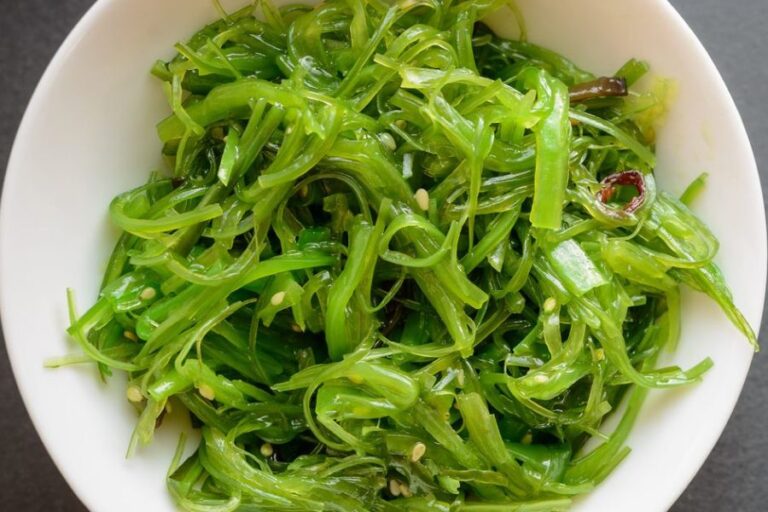Sea moss has gained attention in recent years for its nutrient density and potential health benefits. Often promoted as a superfood, it’s available in various forms, including gels, powders, and capsules. Supporters claim that sea moss can improve digestion, strengthen immunity, and support thyroid health. But with any supplement, regular use raises a practical question: is it safe to take sea moss every day?
This article reviews what sea moss is, its benefits, and the possible risks of long-term use to help you decide whether daily intake is right for you.
What Is Sea Moss?
Sea moss is a type of edible red algae that grows along the Atlantic coasts of North America, Europe, and the Caribbean. The most common species used for health purposes include Chondrus crispus and Gracilaria. It has a long history in traditional medicine, especially in Irish and Caribbean cultures, where it’s used as a natural remedy for various ailments.
You can find sea moss in several forms: raw and dried, gel, capsules, powders, and even blended into beverages or foods. Nutritionally, it contains a wide range of minerals and vitamins, including iodine, potassium, calcium, magnesium, iron, and B vitamins. It’s also a source of fiber and natural compounds like carrageenan, which give it its thick, jelly-like texture when hydrated.
Its nutritional content is one reason people consider adding it to their daily routine—but the source, quality, and preparation method all play a role in how safe and effective it may be.
Health Benefits of Sea Moss
Sea moss is often praised for its wide range of nutrients, which may support several aspects of health. While more human research is needed, here are some commonly reported benefits:
1. Supports Thyroid Function
Sea moss contains iodine, an essential mineral the body needs to produce thyroid hormones. These hormones regulate metabolism, energy levels, and mood. Consistent iodine intake from natural sources like sea moss may help maintain thyroid balance, especially in people with mild deficiencies.
2. May Boost Immune Health
Some studies suggest that sea moss has antimicrobial and antiviral properties. Its vitamin and antioxidant content, including zinc and vitamin C, may also contribute to immune defense.
3. Aids Digestion
Sea moss is rich in dietary fiber and acts as a prebiotic. It can support gut health by feeding beneficial bacteria and helping regulate bowel movements.
4. Promotes Skin Health
When applied topically or consumed regularly, sea moss may help improve hydration and skin elasticity. Some users report clearer, smoother skin with consistent use.
5. May Benefit Joint and Heart Health
Sea moss contains omega-3 fatty acids and potassium, which may support heart health by helping to manage blood pressure and reduce inflammation.
These potential benefits contribute to its growing use, but they also highlight the importance of understanding safe usage—especially with daily intake.

Recommended Dosage and Typical Use
There is no official standard dose for sea moss, but general recommendations vary depending on the form used. For sea moss gel, most sources suggest 1 to 2 tablespoons per day. For capsules or powder, the typical daily dose falls between 500 to 1,000 milligrams.
Since sea moss is a natural source of iodine and other minerals, moderation is key. Taking more than the suggested amount can increase the risk of side effects, especially over time.
Product strength also varies. Some supplements are more concentrated than others, so it’s important to read labels carefully and follow the instructions provided. Always buy from reputable brands that test for contaminants such as heavy metals.
If you’re new to sea moss, start with a smaller dose and gradually increase it. This gives your body time to adjust and helps you identify any sensitivity or digestive changes.
Possible Risks of Taking Sea Moss Every Day
While many people tolerate sea moss well, daily use isn’t risk-free. Some potential concerns arise from its nutrient content, especially when taken in large amounts or from poor-quality sources.
1. Iodine Overload
Sea moss is naturally high in iodine, which is essential for thyroid function. However, too much iodine can disrupt thyroid hormone production and lead to conditions such as hyperthyroidism or hypothyroidism. Symptoms of iodine excess may include fatigue, weight changes, mood swings, or irregular heartbeat.
2. Heavy Metal Contamination
Because sea moss grows in ocean environments, it can absorb heavy metals like mercury, lead, and arsenic. If it’s harvested from polluted waters or not properly tested, daily intake could lead to long-term exposure. Choosing sea moss from clean, certified sources reduces this risk.
3. Digestive Side Effects
Some users experience bloating, gas, or diarrhea from sea moss, particularly when taking more than recommended. This is usually due to its high fiber and mucilaginous content.
4. Allergic Reactions
Though uncommon, some individuals may be allergic to sea moss or other types of seaweed. Reactions could include skin irritation, nausea, or difficulty breathing.
Being aware of these risks is important when considering whether to include sea moss in your daily supplement routine.
Who Should Be Cautious About Daily Sea Moss Use?
Daily sea moss may not be suitable for everyone. Certain individuals should avoid or limit regular intake, especially without medical supervision.
1. People With Thyroid Conditions
Because sea moss is high in iodine, it can interfere with thyroid medications or worsen existing thyroid disorders. Those with hypothyroidism, hyperthyroidism, or autoimmune thyroid disease should speak with a healthcare provider before using sea moss regularly.
2. Individuals Taking Medication
Sea moss may interact with blood thinners, diuretics, or medications that affect iodine absorption or electrolyte balance. If you’re taking prescription drugs, check for potential interactions before adding sea moss to your routine.
3. Pregnant or Breastfeeding Women
Research on sea moss safety during pregnancy and lactation is limited. The high iodine content could impact fetal or infant thyroid function. It’s best to consult a doctor before using it consistently during these stages.
4. Children
Due to the lack of dosing guidelines and limited research on safety in younger populations, children should not take sea moss daily unless advised by a pediatrician.
Anyone with chronic health conditions or sensitivities should approach daily sea moss use cautiously and prioritize professional guidance.

How to Use Sea Moss Safely
To minimize risk and get the most benefit from sea moss, it’s important to use it carefully and intentionally. Here are a few guidelines for safe daily use:
1. Choose High-Quality Products
Source matters. Look for sea moss that’s wild-harvested from clean waters and tested for heavy metals and contaminants. Avoid products with additives or artificial fillers. Reputable brands should provide transparency about sourcing and third-party testing.
2. Stick to Recommended Dosages
More isn’t always better. Start with the lowest effective dose—such as one tablespoon of gel or 500 mg of powder or capsules per day—and only increase if needed. Going beyond daily recommendations may increase the risk of side effects, especially from excess iodine.
3. Monitor Your Body’s Response
Watch for changes in energy, digestion, skin, or mood. If you notice unwanted effects, stop use and consult a healthcare professional. Sea moss can affect thyroid hormones, so it’s important to stay alert to physical symptoms.
4. Consult a Doctor If You Have Medical Conditions
If you have thyroid disease, take medications, or are pregnant, seek professional medical advice before using sea moss daily. A personalized approach helps reduce risk and ensures you’re not unintentionally causing harm.
Safe, consistent use starts with informed choices.
What Experts Say About Long-Term Use
Scientific research on sea moss is still developing. While early studies and anecdotal reports suggest benefits, there’s limited data on the long-term safety of daily use—especially in supplement form.
Some nutritionists support moderate use of sea moss as part of a balanced diet, primarily because it supplies minerals that many people lack. However, they often stress the importance of portion control and choosing reputable sources. The biggest concerns among experts relate to its iodine content and the potential for contamination with heavy metals if not properly sourced.
Currently, most health professionals agree that occasional or moderate use of sea moss is unlikely to cause harm in healthy individuals. But daily use—particularly in high amounts or without medical oversight—carries some risks. This is especially true for those with thyroid issues or underlying medical conditions.
More human studies are needed to confirm its safety and effectiveness over long periods. Until then, caution and moderation remain the most responsible approach.
Conclusion
Sea moss offers a range of nutrients that may support thyroid function, digestion, immunity, and skin health. Many people take it daily to boost their mineral intake or improve specific health concerns. However, its safety depends on how it’s used.
Daily use can be safe for healthy adults when kept within recommended limits and sourced from clean, tested suppliers. But overconsumption or poor-quality products increase the risk of iodine overload, digestive discomfort, or heavy metal exposure. Certain groups—including those with thyroid conditions, people on medications, pregnant women, and children—should be especially cautious.
If you’re considering adding sea moss to your daily routine, speak with a healthcare provider first. A careful approach ensures that you benefit from its nutrients without running into avoidable health issues.
Frequently Asked Questions (FAQs)
1. Can I take sea moss every day?
Yes, many people safely take sea moss daily in moderate amounts. Stick to recommended doses and choose products from trusted sources.
2. How much sea moss is safe per day?
Most sources recommend 1 to 2 tablespoons of gel or 500–1,000 mg of powder or capsules per day.
3. What happens if I take too much sea moss?
Excessive intake may cause iodine toxicity, digestive upset, or heavy metal exposure, depending on the quality and quantity consumed.
4. Who should not take sea moss daily?
People with thyroid conditions, those on medications, pregnant or breastfeeding women, and children should avoid daily use unless approved by a doctor.
5. Can sea moss interfere with medications?
Yes, it may interact with thyroid medications, blood thinners, and other prescriptions. Consult your doctor if you’re taking any medication.
6. How do I know if my sea moss is safe?
Choose sea moss from brands that test for purity and heavy metals, and avoid products with artificial additives.
References
- The Nutrition Insider. (n.d.). Sea moss: Benefits, risks & how to use it. The Nutrition Insider.
- Jamaica Herbal. (n.d.). Strengthening your immune health during winter: The power of elderberry, sea moss, and moringa. Jamaica Herbal.
- Freeman, J. W., & Eddy, C. R. (1989). Sea moss: Growth modeling for a marine resource. IEEE Transactions on Systems, Man, and Cybernetics, 19(4), 793–797.
- Herbal Vineyards. (n.d.). Is sea moss good for your mental wellbeing?. Herbal Vineyards.
- Holland & Barrett. (n.d.). What is sea moss good for?. Holland & Barrett.
- Prieto Jimenez PM, Jun-Ihn E, Matthews M, Lollie T, Qu Y, Martin MG. An unusual case of infantile hepatic steatosis caused by coconut-based infant formula. JPGN Rep. 2022;3(4):e235. doi:10.1097/PG9.0000000000000235
- Khalifa M, Aftab HB, Kantorovich V. “Fueling the fire” – Irish sea-moss resulting in jod-basedow phenomenon in a patient with Grave’s disease. J Endocr Soc. 2021;5(Supplement_1):A906-A906. doi:10.1210/jendso/bvab048.1849
- Patel AK, Singhania RR, Awasthi MK, et al. Emerging prospects of macro- and microalgae as prebiotic. Microb Cell Fact. 2021;20(1):112. doi:10.1186/s12934-021-01601-7
- Lomartire S, Marques JC, Gonçalves AMM. An overview to the health benefits of seaweeds consumption. Mar Drugs. 2021;19(6):341. doi:10.3390/md19060341
- Academy of Nutrition and Dietetics. How to keep your immune system healthy.
- MedlinePlus. Thyroid diseases.
- Davani-Davari D, Negahdaripour M, Karimzadeh I, et al. Prebiotics: Definition, types, sources, mechanisms, and clinical applications. Foods. 2019;8(3):92. doi:10.3390/foods8030092
- Mazaheri Nia L, Iravani M, Abedi P, Cheraghian B. Effect of zinc on testosterone levels and sexual function of postmenopausal women: a randomized controlled trial. J Sex Marital Ther. 2021;47(8):804-813. doi:10.1080/0092623X.2021.1957732
- Bates JN, Kohn TP, Pastuszak AW. Effect of thyroid hormone derangements on sexual function in men and women. Sex Med Rev. 2020;8(2):217-230. doi:10.1016/j.sxmr.2018.09.005
- MedlinePlus. Parkinson’s disease.








